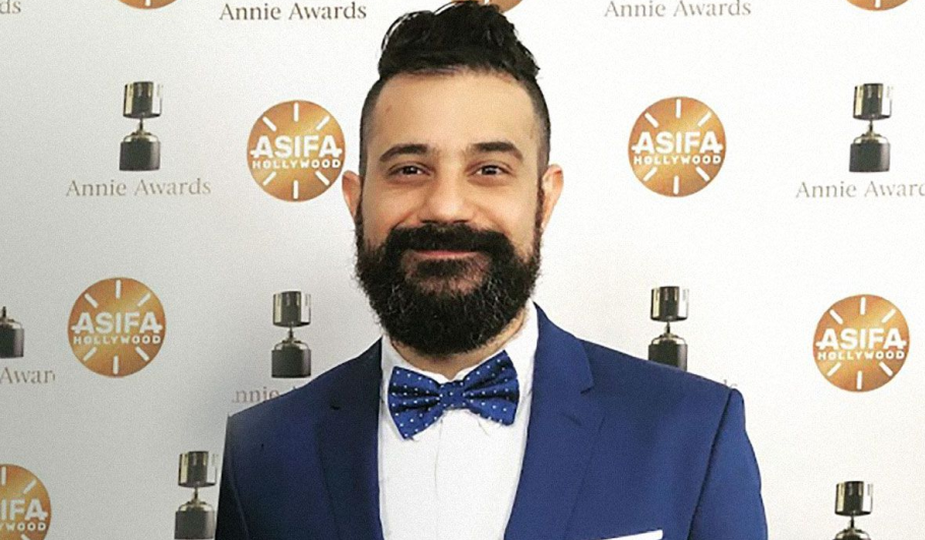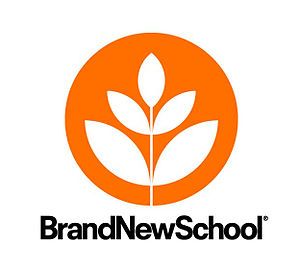
The Directors: Nico Casavecchia

Nico Casavecchia is an Argentine director based in Los Angeles. His work employs mixed media techniques ranging from live action to design to animation.
Nico’s career spans commercials, films and VR. Most recently, he directed visual campaigns for clients including Sonos, Dropbox, Facebook, IBM and Izze. His work has been showcased in Wired, by the BBC, and in The New York Times, and in film festivals including Sundance and SXSW. His work has received awards from Cannes, D&AD, One Show, AICP, the Clios and the Guinness Book of World Records for the world’s smallest stop-motion film.
Casavecchia's first feature-length film, Finding Sofia, debuted at the 2016 Austin Film Festival. He is also the writer and co-director of BattleScar, a virtual reality film starring Rosario Dawson which premiered at the 2018 Sundance Film Festival. The Verge described the film as done with “Unusual confidence and sophistication”.
Name: Nico Casavecchia
Location: Los Angeles
Repped by: Brand New School
LBB> What elements of a script sets one apart from the other and what sort of scripts get you excited to shoot them?
Nico> What I love the most about a potential project is the chance to experiment and create something special. This always starts with the script. It can have a visual idea, or a certain tone, it could also incorporate funny dialogue or a combination of references that has the potential to create something unique. I’m always looking for those kinds of scripts.
LBB> How do you approach creating a treatment for a spot?
Nico> The first conversation with the agency is the most important part of my pitching process. I like to go to the first creative call with ideas, it’s my opportunity to brainstorm with the people who lived with the project the longest. I take a lot of notes that help me create my vision for the campaign. As a director you want to build on top of great scripts. I like crafting an execution that elevates the original idea. I break down the different aspects of the campaign to tackle them individually, but keeping a conceptual consistency. Wardrobe, cinematography, art direction, everything needs to respond to the same creative principles.
LBB> If the script is for a brand that you're not familiar with/don’t have a big affinity with or a market you're new to, how important is it for you to do research and understand that strategic and contextual side of the ad? If it’s important to you, how do you do it?
Nico> If the project I’m pitching is for a brand I’m not familiar with, I ask my team to research their communication. Reviewing the previous ads helps me understand the brand’s tone. I want to speak the language of the brand. Understanding this is key to adjust the limits of my pitch and modulate my thinking.
LBB> For you, what is the most important working relationship for a director to have with another person in making an ad? And why?
Nico> All the spots that I really love were done in collaboration with great creatives with whom I shared a common vision. It’s impossible to create something great if the client, the agency, and the director are not in the same page. Working closely with creatives is key, and mutual trust across the whole team is very important.
LBB> What type of work are you most passionate about - is there a particular genre or subject matter or style you are most drawn to?
Nico> My favourite kind of work mixes live action in real locations with a high visual concept. I love combining live action with post production and VFX. My most creative work was always done mixing mediums together and using different visual techniques.
LBB> What misconception about you or your work do you most often encounter and why is it wrong?
Nico> There is an unintended consequence of risk management in advertising that leads to give the job to the director that did it before. I’m a problem solver and the nature of my work is reinvention. I love doing new things all the time, and this sometimes goes against the grain of the industry. I’m lucky to work with producers that are great at explaining why I might have never done a particular thing before and yet would be great at it.
LBB> Have you ever worked with a cost consultant and if so how have your experiences been?
Nico> Cost consultants generally connect directly to my producers, but I love finding creative solutions to the materials limitations that you always find on a shoot. No budget is immune to limitations and nowadays you have to work very closely with producers and cost consultants to make the most out of the resources you have for the job.
LBB> What’s the craziest problem you’ve come across in the course of a production – and how did you solve it?
Nico> Definitely the craziest logistical challenge I was ever involved in solving was for an IBM spot called “A Boy and His Atom.” It was done in collaboration with nano-storage scientists using a Scanning Tunnelling Microscope to create a stop motion animation using individual atoms. It was the first time in my career where failure was a very clear possibility. The biggest challenge was to create a common language with the scientists that could help us collaborate. How do you define what’s possible when your final goal is something nobody ever tried before? After a crazy adventure we were able to produce the smallest stop motion animated film in the history of cinema certified by the Guinness Book of World Records!
LBB> How do you strike the balance between being open/collaborative with the agency and brand client while also protecting the idea?
Nico> Ideas are saved only through tight collaboration across agency, client and production company. It’s very hard to push for an idea if the rest of the team is not aligned. I always try to make a rational case for my thinking, and be mindful of the product and the communication of the brand. Trying to defend ideas that go against the nature of a brand never works out. You have to speak the language!
LBB> What are your thoughts on opening up the production world to a more diverse pool of talent? Are you open to mentoring and apprenticeships on set?
Nico> As an immigrant and a POC myself, I was privileged to see the kind of opportunities I have had in my career and to encounter people along the way who trusted my artistic vision. I was lucky enough to find a company like Brand New School that backs me up 100%. Having the certainty that your producers are behind you is the only way of producing good work. That’s why I’m always encouraging young people from diverse backgrounds and trying to help them the same way I was back when I started.
LBB> How do you feel the pandemic is going to influence the way you work into the longer term? Have you picked up new habits that you feel will stick around for a long time?
Nico> Definitely the pandemic pushed our careers 10 years into the future. Flexibility is the key word. The ability to shoot remotely is a new tool in our kits that would have taken years to take off if it wasn’t for the current situation. I obviously love being on set, but with remote production I can imagine a spot in multiple locations where I can direct all the units. I’m also very excited about collaborating with artists around the world and during the pandemic we proved that our pipeline in Brand New School was resilient enough to do it.
LBB> Your work is now presented in so many different formats - to what extent do you keep each in mind while you're working (and, equally, to what degree is it possible to do so)?
Nico> I cope. It’s not ideal. Whatever looks great in 9:16 won’t look great in 16:9 there is no way around it. I always want to know the deliverables in advance and prepare. Sometimes I end up shooting multiple takes in different formats. It comes down to how coordinated you are with the creatives so you can move faster through the setups. But we make it work! Most of our work is multiple format, we rarely have one format deliveries anymore.
LBB> What’s your relationship with new technology and, if at all, how do you incorporate future-facing tech into your work?
Nico> I’m kind of a geek, I love the potential of technology for making art. I always try to combine technology with tangible, old school techniques to bring character to everything I do though. This year, I premiered my first Virtual Reality experience in the Facebook/Oculus store. It’s called BattleScar, and it invites audiences to live in the punk rock scene of late 70s New York City for 30 minutes. The experience stars Rosario Dawson (I couldn’t be prouder). Working in VR opened my eyes to real time rendering. I think game engines will change the way we do pre and post production, from real time backdrops on set to interactive commercials. I'm looking forward to bringing all these ideas to my commercial productions.
LBB> Which pieces of work do you feel really show off what you do best – and why?.
Nico> 'Starbucks Summer' reflects my love for mixing different techniques and creating crazy fluid camera moves.
'A boy and his Atom' is the craziest adventure I ever had in the world of commercials. I recommend watching the behind the scenes documentary where the scientist illuminates the process of creating the piece.
'Sonos Forest' is a good example of the kind of creative vision across all the members of the team. It’s always a pleasure to execute an amazing visual concept created by a cool agency.













